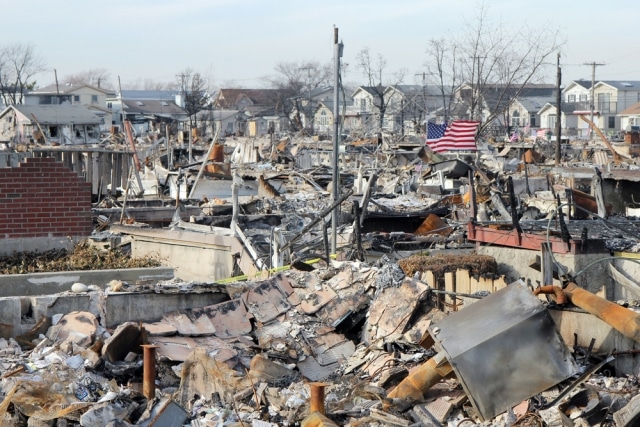Recently published data collected by the World Meteorological Organisation shows there were close to five times as many weather- and climate-change-related disasters in the first decade of this century than in the 1970s.
As many as 1.94 million people lost their lives due to these catastrophic weather events between 1970 and 2012, which cost $2.4 trillion US in economic losses, according to the Atlas of Mortality and Economic Losses from Weather, Climate and Water Extremes (1970–2012).
The 44-page atlas, a joint publication of the Geneva-based UN agency WMO and the Centre for Research on the Epidemiology of Disasters (CRED) of the Catholic University of Louvain in Belgium, examined major reported disasters linked to weather, climate and water extremes.
The atlas included 8,835 major disasters in the four decades between 1970 and 2010. The largest increase, however, was between 1971 and 1980 with 743 extreme events and 2001 and 2010 with 3,496 events.
Flooding and storms were the main cause of the disasters in the last decade but the data also shows heat waves are becoming more deadly and more common.
“Disasters caused by weather, climate, and water-related hazards are on the rise worldwide. Both industrialized and non-industrialized countries are bearing the burden of repeated floods, droughts, temperature extremes and storms,” WMO Secretary-General Michel Jarraud said in an accompanying media release.
“Improved early warning systems and disaster management are helping to prevent loss of life. But the socio-economic impact of disasters is escalating because of their increasing frequency and severity and the growing vulnerability of human societies.”
Written to help decision-makers better understand the disasters and efficiently plan for future similar events, the atlas found that the 10 costliest catastrophes accounted for 19% or $444 billion of overall economic losses.
“Storms and floods accounted for 79% of the total number of disasters due to weather, water and climate extremes and caused 54% of the deaths and 84% of economic losses,” the atlas said. “Droughts caused 35% of deaths, mainly due to the severe African droughts of 1975, 1983 and 1984.”
Ranking disasters according to the numbers of deaths, the atlas found that a 1983 drought in Ethiopia and a 1970 tropical cyclone in Bangladesh each killed 300,000 people, making them the most lethal weather-related events in the past 40 years.
In terms of economic losses by disaster types, hurricane Katrina in 2005 was the most expensive, costing $147 billion. Hurricane Sandy, in 2012, was the second most expensive storm, costing $50 billion.
The media release also noted the UN’s Global Assessment Report on Disaster Risk Reduction 2013 concluded that direct and indirect losses from natural hazards of all kinds have been underestimated by at least 50% because of data collection challenges.
“Another challenge for users of risk information is the changing characteristics (frequency, location, severity) of weather-, climate- and water-related hazards,” the release added. “Natural climate variability is now exacerbated by long-term, human-induced climate change, so that yesterday’s norms will not be the same as tomorrow’s.”
Image credit: Breezy Point, NY in the aftermath of Hurricane Sandy, via Shutterstock.
Subscribe to our newsletter
Stay up to date with DeSmog news and alerts






